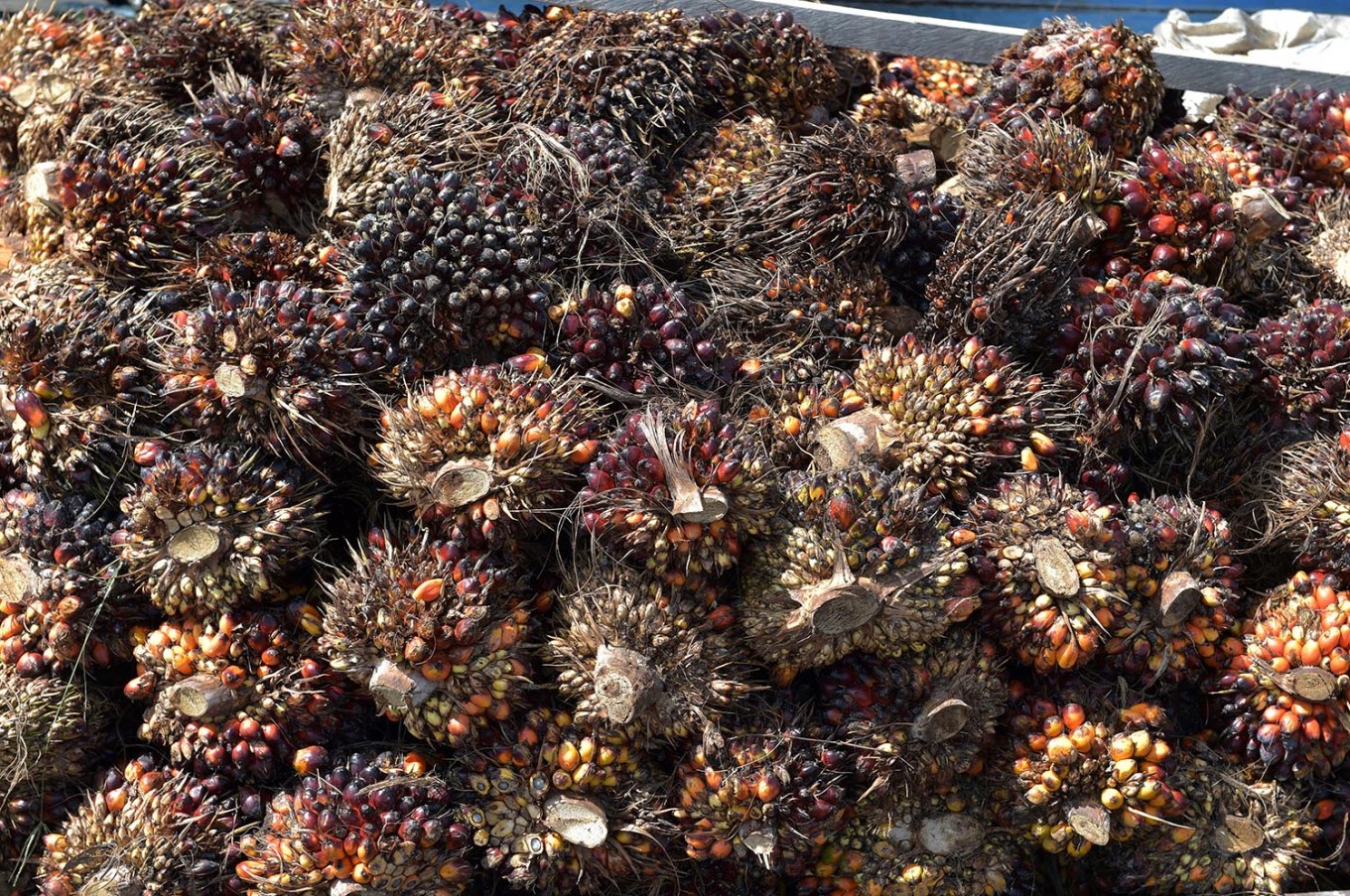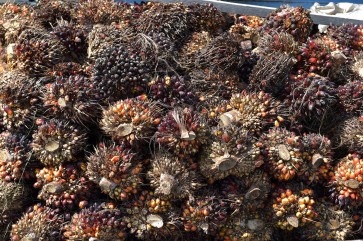Helping smallholders in palm oil
Among the three groups of palm oil producers, the area of smallholders’ plantations grew at the highest rate.
Change Size
 This picture taken on February 14, 2017 shows palm oil seeds in Kendawangan, West Kalimantan. (AFP/Adek Berry)
This picture taken on February 14, 2017 shows palm oil seeds in Kendawangan, West Kalimantan. (AFP/Adek Berry)
T
he increasing demand for palm oil for food and energy has prompted the Indonesian government to determine a strategy to increase palm oil production, among others, by issuing Agriculture Ministerial Decree No. 33/2006 on plantation development through plantation revitalization programs.
Currently, Indonesia is the biggest producer of crude palm oil (CPO) in the world, surpassing Malaysia. However, Indonesia still lags behind Malaysia in CPO productivity. Palm oil production in Indonesia is less than 4 tons per hectare per year, while in Malaysia, production has reached more than 5 tons per ha per year.
It indicates that the higher production in Indonesia occurs in light of oil palm plantation expansion. Among the three groups of palm oil producers, the area of smallholders’ plantations grew at the highest rate, namely 11.4 percent per annum, which is much higher than that of private companies (5.4 percent) and state-owned companies (1.1 percent).
The rapid forest and arable land conversion for oil palm indeed raises concerns, among others, on deforestation, decreased food production and loss of biodiversity. The above circumstances pose a challenge for Indonesia to comply with consumer-driven demand for sustainable palm oil production.
Prerequisites determined by the Roundtable on Sustainable Palm Oil (RSPO) have created segmentation or barriers in the global palm oil market, particularly to enter the European Union market. Holding an RSPO certificate by palm oil producers is a must for this market. In the future, such a demand may increase and come from a wider range of global consumers (including from non-European countries) due to the massive campaign for social and environmentally friendly products (i.e. sustainable production). Indeed, sustainable palm oil production has become a goal of oil palm plantations in Indonesia.
The area of oil palm plantations run by independent smallholders continues to rapidly increase at the expense of forest and farmland. This area grows massively and in an uncoordinated and disorganized manner. In Indonesia, there are many palm oil mills that do not have their own plantations. Apparently, these mills require and depend on supply from independent smallholders. The presence of such palm oil mills has raised the number of local agents (middlemen) who buy fresh fruit bunches (FFBs) directly from farmers. Local agents usually offer small loans to farmers in order to attract and bind them into informal contracts. On top of that, the sorting mechanism becomes loose due to high competition among local agents in getting FFBs, thus they often accept the mixing of inferior products with superior ones.
How to fix problems at independent smallholders in order to make them able to respond global challenges on sustainable palm oil production (through RSPO certification) remains a task for the government, farmers and related stakeholders. The RSPO ( 2007 ) defines “sustainable palm oil production” as management and governance of palm oil production that complies with the law, economic viability, ecological appropriation and social well-being. Those principles are perceived as very weak in the production systems of independent smallholders.
















